How To Protect Your Camera While Taking Photographs In The Desert
Whether you're just pulling your first DSLR camera out of the box or y'all're a seasoned photographer, one of the well-nigh important things you demand to know is how to protect your photographic camera gear. It'south especially important to know how to avert damage from grit, sand, and clay if you program to accept your camera high-risk locations similar the beach.
Information technology's a great question for every lensman to know the reply to: How do y'all protect your camera from dust and sand when shooting somewhere like the bounding main or the embankment? Start, know the risks of what dust and sand can do to your photographic camera. 2d, take steps to reduce the adventure, and lastly, know what to do if your camera comes in contact with dust, sand, or moisture. All of this is important knowledge to have to go on your equipment safe and avoid big bills at the photographic camera repair shop.
Is it Safe To Take A Photographic camera To The Embankment?
If you enquire an experienced photographic camera repair professional if information technology's rubber to take a camera to the beach, they're likely to answer both yep, and no. The answer might be no, considering the risk of harm is high when taking your photographic camera to an environment like the beach where there's sand, salt, and wet to debate with. The answer might too be yes, because if you lot know the risks—and do your all-time to try and prevent impairment—most photographers can safely shoot without harming their equipment.
What harm can dust and sand practise to your DSLR camera?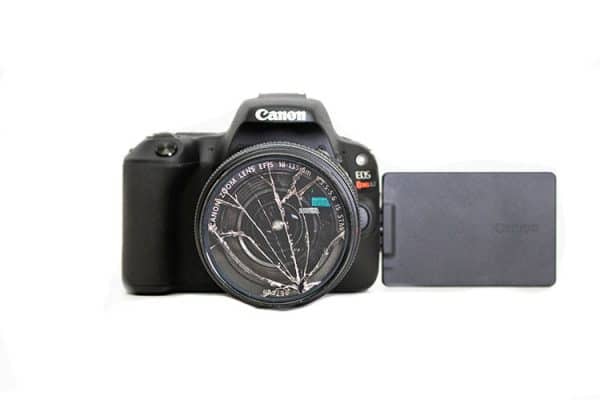
Many people think that the biggest take chances to a camera at the beach is water. Even if the photographic camera never gets most the ocean, the more problematic issue is dust, sand and droppings. When these get almost your camera, at that place are lots of things that can go incorrect:
• Scratches to the lens or sensor surface.
• Blockages in the gear units for zooming or focusing the camera.
• Damage to internal electronics if droppings enters the camera example.
• Clog buttons and dials on the exterior of the photographic camera.
• Damage to batteries, retentiveness cards, and USB connections.
In add-on, repairs for dust and sand damage can be incredibly costly. The entire camera must be dismantled, cleaned and any parts that were damaged must be replaced. This is an expensive fix if you lot need to send information technology back the manufacturer. It's also not often covered by just the standard camera warranty. In order for sand and dust impairment to be fixed free of charge you typically demand to pay for extended damage protection.
The first affair to know to protect your camera from dust and sand is to know if your camera is weather sealed and how well-protected it is. Not all cameras have the same level of protection confronting the elements. If you know you lot'll be using your photographic camera at the beach regularly, consider a camera manufactured for water and sand exposure. In that location are several "tough" camera options on the market that can withstand some exposure to the elements. Otherwise, you'll need to accept some of these extra precautions to keep your photographic camera safety at the beach.
xiv Ways to Keep Your Photographic camera Safe at the Embankment

ane. Don't bring it. Choose a prison cell phone instead.
It may be a moot indicate, but if you want a 100% full-proof way to forestall damage to your camera at the beach then leave your photographic camera at domicile. At that place's no guaranteed manner to avoid grit and sand in your camera, so if it's really of import to keep it safe, yous're meliorate off bringing a used model or your jail cell telephone camera along instead.
2. Comport Your Camera and Camera Purse. Don't set them in the Sand.
The all-time way to avoid grit and sand in your photographic camera is to avoid whatever contact with the basis. Comport your camera at all times and never fix it directly in the sand. It's fifty-fifty too risky to fix your photographic camera out on a towel while you're not using it. At whatsoever time, sand can accidentally be kicked or blown onto it.
The same rule applies to your camera pocketbook. Avoid setting it directly on the ground or in the sand. Endeavor your best to avoid getting sand in or on the outside of the bag. The fine particles are difficult to remove and tin can end up causing damage to your camera afterward on.
3. Avoid Touching Your Camera With Dingy Hands.
If you've stopped to have some fun in the sand or in the water, you'll desire to avert picking your camera dorsum upward without first washing your easily. Dust and sand on our easily can be easily transferred into the buttons on your camera or into the gear parts of your lens as you accommodate the zoom or focus. The extra few seconds information technology takes to rinse off might save you hundreds of dollars in repairs subsequently on.
4. Continue camera equipment away from Sunscreen and Bug Spray.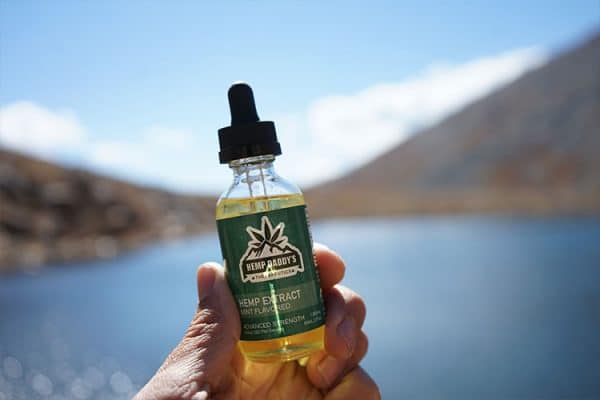
The "always launder your hands" rule also applies if you've applied sunscreen, tanning oil, or problems repellant. Yous'll want to launder your hands before you use your camera if you've been in contact with whatever of these items. Dominicus lotions, tanning oils, and problems repellants can incorporate harsh chemicals that will crusade damage to your camera. The greasy film left behind from sunscreen can be difficult to remove it ends up on lenses or your camera buttons. The harsh chemicals may cause corrosion of parts every bit well.
Exist sure that if yous're using spray sunscreen or bug repellant that you move far away from whatever camera equipment. Overspray is only equally harmful and difficult to remove from lenses and the camera body as transferring it from your hands.
5. Encompass your Photographic camera with a Rain Embrace or Waterproof Housing
If yous know you'll exist taking your camera to the beach to shoot, the easiest and nigh affordable way to protect the lens and camera trunk from dust and sand is to use rain gear or a waterproof housing. Even if you lot don't intend to accept your camera near the water, both a rain cover or waterproof example will reduce the corporeality of debris that reaches the camera.
If yous didn't remember to pack a rain comprehend, some other selection that will work in a pinch is to use a plastic zip-top bag or plastic grocery bag. Place the camera trunk in the pocketbook and make a pocket-sized opening to button through the end of the lens. Slide your hands in the handbag and utilise the camera under the protection of the plastic. Information technology will non protect also as a fitted rain cover or a waterproof case, just it should keep some droppings off the trunk and lenses.
vi. Avoid Lens Changes 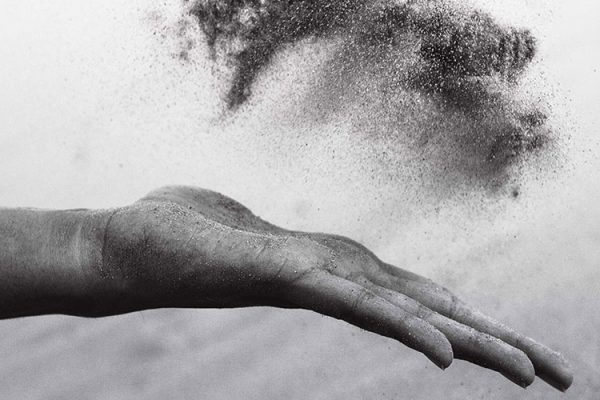
Another critical affair to remember if you're taking your photographic camera to the beach, if at all possible, is to avoid lens changes. Whatever time you betrayal the lens and camera sensor to the elements, you're at risk of damage from particles getting inside the camera body. Determine which lens you plan to utilize before you go out the protection of your vehicle for the best chance of avoiding dust and sand damage.
7. Modify Lenses Out of the Air current
If y'all absolutely must swap lenses during a photo shoot at the beach, you'll desire to at minimum find a place to swap lenses out of the wind. Go to a picnic shelter, your vehicle, or make a wind barrier with your torso. Work equally rapidly every bit possible to avert the amount of time your lens and sensor are exposed to the elements.
Be careful though, quickly trying to swap lenses to avoid the wind is 1 of the common ways a lens get dropped. At that place'southward zilch worse than rushing to avoid some dust particles just to drop the lens right into the sand. If needed, utilise a friend as a second gear up of hands to hold the lens caps and put the protective case back over the sensors.
eight. Protect Your Lens with a UV Filter
While there's some debate among professional person photographers about how much protection lens filters provide, if y'all plan to utilize a favorite lens in less-than-ideal conditions, yous may want to add a UV filter. Filters are far less expensive to replace than the lens if scratched by dust or sand. It'south still possible to experience sand and moisture impairment if the filter doesn't create a weatherproof seal with the front of the lens. All the same, some UV filters come with waterproof coatings on them for added protection against water and debris.
The aforementioned notes utilize to changing lenses as they practice for changing filters. If you don't have to change them on the beach or in the wind, avoid information technology. Always brand sure your hands are clean and dry before y'all handle a filter. And finally, if in that location's sand or debris on the rings of the filter, clean them carefully earlier you lot try to attach the filter to the lens. Not removing information technology may result in damage to the filter or the lens.
9. Apply a Tripod
Some other choice to consider to avoid inadvertently dropping your camera in the sand during a beach shoot is to use a tripod. Attaching your camera tightly (and using a rain cover to protect both the tripod and photographic camera) can offer more protection from the elements, especially if yous'll be shooting where the camera may be discipline to spray from the ocean or a waterfall. When purchasing a tripod, make sure that its capacity can hold both the weight of your camera body and your heaviest lens combined.
x. Dry Off Any Wet Quickly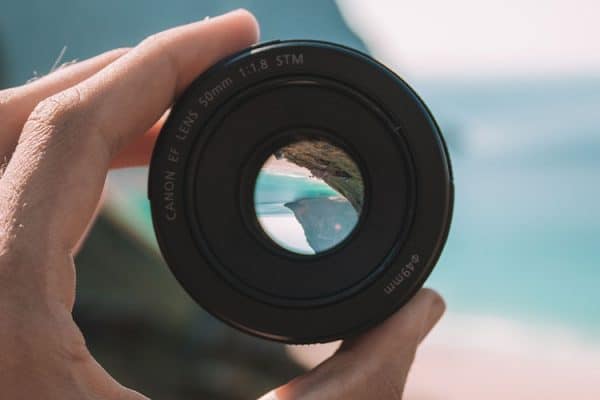
If y'all happen to experience a mishap at the beach and a flake of rain or spray ends up on the lens or camera body, just sure to address it quickly. Allowing h2o aerosol to dry out on the lens tin result in water spots—or in some cases—tiny mineral deposits that adhere to the lens glass. These deposits are difficult to remove later on, and tin can even put your lens at risk for scratches equally you try and remove the spots. Information technology's best merely to be proactive and immediately address whatsoever moisture that your camera comes in contact with.
11. Carry a Blower (Don't Wipe!)
Forth with drying up moisture right away, you'll likewise want to address sand and debris every bit soon as possible. The important thing for grit and sand is to always avert wiping the lens. Every bit tempting as it may exist to grab the cease of your t-shirt and rub the dust off the glass, information technology's a large no-no in the photographic camera cleaning world. As you wipe dust abroad, you're at chance of leaving tiny scratches on the glass from grinding in the sand and grit particles. Even if yous're not able to see the scratches, they can impact epitome quality and the functionality of your lens.
Instead, you'll want to conduct an air blower in your photographic camera handbag to apace clean lenses and the sensor. These especially designed grit-removal tools use are the most efficient way to proceed your lens clean during a shoot.
12. Clean Your Gear Right Away
While a dust blower tin can be a good tool to use in a pinch, information technology doesn't substitute for a solid cleaning of your photographic camera gear when yous return from a photograph shoot at the beach. Cleaning all your gear (lenses, camera body, filters, camera bag interior and exterior, tripod, etc.) is the best way to avoid dirt and dust later on transferring to the lens. Cleaning right away when you return, will avert the 'out-of-sight-out-of-mind' scenario where you intend to make clean the camera at a later time, merely don't end upwards bringing it back out until right before the next shoot.
The best habit is to spend a few minutes giving your camera a good cleaning each time you finish using it. If you charge for your photography services, incorporate the time it takes to clean your gear into your sitting fee so it doesn't feel like 'lost' or wasted time.
thirteen. Purchase the protection programme for your equipment
Another piece of good communication for photographers who will regularly shoot in situations where grit, sand, and moisture are factors, is to consider purchasing an extended protection plan for your camera equipment. Offered past many manufacturers and camera retailers, these extended warranty plans come in all different levels of coverage and types of repair services. If you lot know there'southward a high probability y'all might terminate up with dust or moisture in your lens or camera torso, it may exist worth paying a fleck more than upfront for the peace of mind after on.
You may besides want to check with your homeowner's insurance provider about camera coverage. Some policies tin be adapted to include repairs and replacement costs for expensive photographic camera parts and equipment. If you are considering that beach wedding photography start-up, extra insurance coverage is the way to go.
14. Protect Your Gear From Being Stolen
Ane last annotation well-nigh taking your photographic camera to the embankment: While it's not likely a reason your camera will exist damaged by sand and water, i of the risks worth noting is that camera equipment can be easily stolen if left unattended at the embankment. You lot may retrieve that your gear is rubber while you go for a swim, only if left unattended or out in the open, there's a run a risk your equipment will detect a new owner.
Make certain that when you're at the beach that y'all keep an center on your camera, camera purse, and other gear at all times. If y'all know yous'll be distracted or demand to get out the gear behind, inquire a friend to keep lookout over information technology until you return. Ameliorate yet, take your photos and and so render the gear safely to your locked vehicle while yous enjoy the embankment.
What to practise if your camera is exposed to dust and sand?
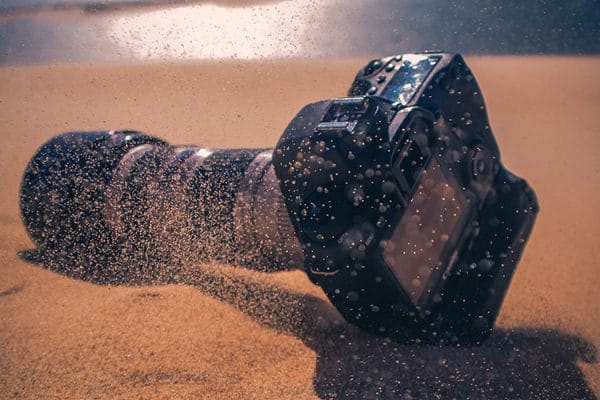
After a day of shooting at the embankment, it's best to immediately clean your camera when y'all become home. Following these steps can aid you lot prevent dust, sand and any salty residue from lingering on your camera or in your camera torso.
i. Wipe down the camera torso with a microfiber. The get-go step to cleaning your photographic camera is to wipe downward the exterior of the camera. Clean off any visible wet or large pieces of debris using a soft, microfiber cloth. Do not wipe the drinking glass surfaces and be careful on the eyepiece and LCD screen areas to avoid dragging dust across the surface and scratching information technology.
2. Employ a dust blower to remove grit particles from the lens. Side by side, employ a clasp-blazon dust blower to blow away big, loose pieces of grit and sand. Utilise curt puffs of air and try to blow air away from the equipment to avoid whatever dust flying back into the lens.
3. Utilise a soft brush to clean out debris from the lens. 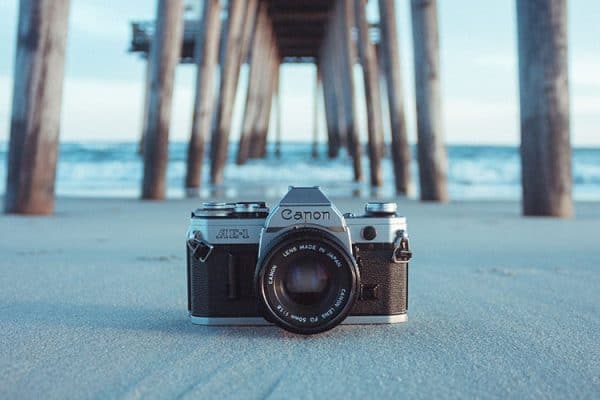 In one case you've blown out big dust particles, you lot'll now desire to go back into the lens with a soft castor to remove all fine particles of dust, sand and droppings. Don't employ pressure level, simply flick the castor around the surface of the lens. If you dislodge a big piece of grit, y'all tin can always go back to using the grit blower to remove it.
In one case you've blown out big dust particles, you lot'll now desire to go back into the lens with a soft castor to remove all fine particles of dust, sand and droppings. Don't employ pressure level, simply flick the castor around the surface of the lens. If you dislodge a big piece of grit, y'all tin can always go back to using the grit blower to remove it.
4. Clean the lens glass. Once you are certain that all droppings is removed from the lens surface, you can deep clean the lens with a moistened lens tissue. This is not always necessary but helpful for any residue, oil or smudge marks that may remain on the lens glass. This should only exist used if needed as repeatedly using lens towels can harm the manufacturer's coatings on the glass.
five. Make clean the camera torso, LCD screen, and buttons. Next follow the same steps as above to clean the camera torso, LCD screen and buttons. Do a thorough wipe down with a towel, then utilize the dust blower to remove whatever large particles of dust off the sensor. Avoid blowing dust directly into the photographic camera body as this can actually force more particles into the interior components. It'south also a expert idea to clean the camera trunk with the lens mountain facing towards the floor to avoid dust from falling back in.
A few other tips to consider when cleaning your camera:
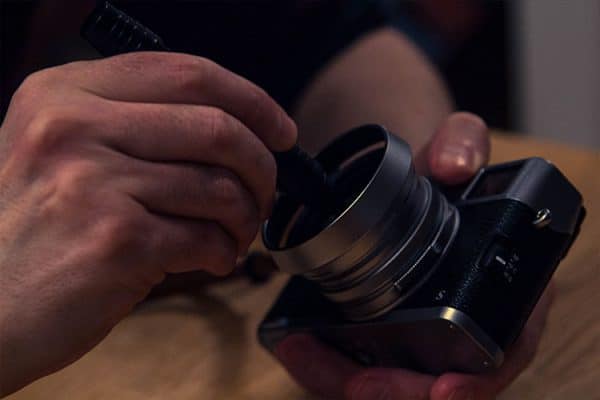
• About manufacturers exercise not recommend that you effort to clean the camera sensor without professional person equipment. There are videos and tutorials for how to exercise information technology online, merely given the possible damage to the unabridged camera, nosotros recommend you lot have the sensor professionally cleaned.
• Unlike other electronics, when cleaning a camera you should avert using compressed air. Cameras are more sensitive than keyboards and reckoner screens. Compressed air can inadvertently blow more than dust into the trunk of your camera and it can besides accident with so much force that the particles scratch the lens or sensor surface.
• If you've gone to the work of cleaning your camera, make sure you lot clean your other accessories every bit well. Filters and lens hoods should exist carefully cleaned for debris and dust. Occasionally you lot should besides remove the camera strap and be certain it's free from dust and clay.
• Finally, you may wish to consider a professional cleaning from time to fourth dimension. If you know y'all had pregnant table salt water or sand exposure, a professional camera cleaning at your local retailer will be the best insurance policy that the harm is contained. You may spend extra for it, but consider it a worthy expense over having to replace broken equipment.
What to do if your camera falls in the water?
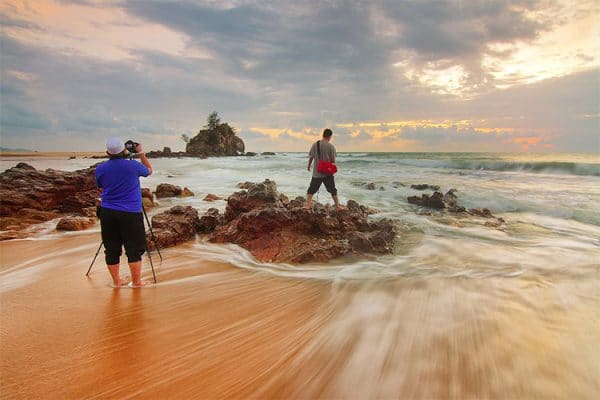
While information technology's cringe-worthy to merely think well-nigh a camera floating in the ocean, we know it's happened before and will happen again. If despite all the best caution you happen to drib your camera into a body of water, there are some steps you lot tin take that may increase the likelihood your equipment can be saved.
Here'south what you should practise if your photographic camera gets moisture:
1. Immediately respond. Don't panic and watch your camera sink to the lesser of the ocean before yous endeavour to remember information technology. The faster y'all can get your camera back out of the water, the better take a chance you have of it surviving. If information technology'south only a few seconds of exposure, it'southward possible that some parts of the camera body will remain dry.
two. Switch off your camera. If your camera was turned on when you dropped it, immediately switch it off. The worst damage to the camera tin can come from water mixing with active electronics in the camera. Shutting off power reduces the chances you lot'll fry them.
3. Remove the memory carte. The next most of import footstep y'all'll want to take is to relieve the images you lot've already taken. If you drop your camera in the body of water on the last day of a dream vacation, you risk not only losing the camera but also risk losing the memories from the entire trip. Memory cards tend to exist adequately h2o resistant, but you'll want to make sure that yous quickly remove it from the camera body and dry it out completely to save the images.
4. Remove the batteries. Have out the batteries next and set them somewhere to dry out with good ventilation. There's a take a chance that the housing on the exterior of your battery pack is water-tight and the battery volition keep to work if dried out completely.
5. Cheque for signs of water. The side by side footstep is to turn your camera over and wait for obvious signs where h2o may accept entered the camera. Only have the lens off if information technology's clear that no water has entered the torso and there's no more than water on the exterior of the housing. You don't want to hazard information technology until the outside of the housing is completely dry.
6. Launder Your Camera. If your camera has been exposed to salt water, you'll want to make sure you immediately wash your camera (it's already wet anyhow!) to avoid corrosion. Salt and other minerals in water tin create havoc for lenses and camera components if whatsoever rest is left.
7. Dry out It Out with Rice. The reason rice continues to exist listed among the strategies to dry out out soggy electronics is that it'southward a trusty method. Open up up your camera's compartments and place your camera in a sealed container of rice. Permit information technology balance for several days, allowing the rice to pull the moisture from out of the camera. But be sure to keep the sensor covered then no grains of rice stop upwardly in your housing.
Another choice if y'all're concerned near water damage, is merely to plough the camera off and immediately take information technology to a camera repair location. If your camera is nether warranty or you lot've paid for extended intendance protection, you may also need to contact the manufacturer. The tips above aren't a guarantee that your photographic camera will continue to work, but are some strategies that might increment the likelihood.

How exercise I protect my camera from the sunday?
1 more factor you might demand to accost when taking your camera to the beach is protecting information technology from the sun. Unfortunately, near cameras are black, the worst colour for sunday-soaked settings. The biggest issue when cameras are out in the lord's day is overheating. A practiced dominion of thumb is that if a minor kid was likely to overheat in the conditions without dominicus protection, and so is your camera.
Then what are ways to protect your photographic camera from overheating? The best way to prevent your photographic camera from overheating is to minimize lord's day exposure. Whenever possible, shoot from a shady spot, use an umbrella, or rotate betwixt a few dissimilar cameras. If these aren't an selection, you can always bring an ice pack (sealed in a aught-pinnacle plastic bag to preclude moisture exposure) and place it in your camera bag to bring the temperature downwards.
Tin can you employ a DSLR camera in the rain?
Information technology depends on the camera. Some cameras accept more weatherproofing capabilities than others. Knowing your own model and how weathertight the seals around the camera body and lenses are is of import. Some cameras tin can withstand a fine mist of a waterfall, but volition experience damage in a heavy downpour. Other cameras might have trouble in any type of wet conditions.
Regardless, if there'south a risk you may betrayal your camera to water during a shoot, you'll demand a rain sleeve. One-time utilize only sleeves are affordable and easy to pack in your camera bag. If you lot're caught without one, follow the tips to a higher place to dry out your camera if it ends up exposed to wet.
How do I protect my DSLR when shooting in the desert?
Simply like taking your photographic camera to the embankment, at that place are some things yous'll want to consider earlier your side by side photography shoot in a desert scene. While some cameras are built to withstand elements, the dry, hot and sandy conditions of desert scapes can be specially hard on cameras. There are some steps you'll want to take to best protect your camera from these elements.
Outset, cover the photographic camera whenever possible. In the desert, you won't need to worry about moisture, so you're improve off choosing a camera cover that can deflect some of the oestrus. Space blanket material that'due south designed to shield from heat can help avert issues with the sensitive electronics in your photographic camera body overheating.
Along with roofing the camera, you'll also desire to proceed an eye on the temperature of your camera gear. Lenses and sensors are designed with specific temperature points in mind. Likewise hot and your camera may overheat. Non only are you not able to continue shooting in the moment, but you lot're also risking impairment to the camera over time. Keep the gear in the shade whenever possible, or use ice packs and fans to keep things cool.
Finally, you'll want to make sure that y'all maintain an aggressive cleaning schedule for your camera gear when shooting in desert settings. It's likely that yous'll end up with dust, sand, and other debris in your lens from the hot and breezy conditions.
Source: https://www.shuttertalk.com/protect-camera-from-dust-sand/
Posted by: groutalled1955.blogspot.com

0 Response to "How To Protect Your Camera While Taking Photographs In The Desert"
Post a Comment